There’s something universally heart-melting about baby elephants. Maybe it’s their oversized ears flapping like they’re trying to take flight or their trunks that seem to have a mind of their own. Whatever it is, these gentle giants in miniature form hold a special place in our hearts. So, let’s embark on this charming journey through the lives of baby elephants with a list that promises to deliver a delightful dose of cuteness and insight, revealing the quirks and incredible lives of these darling pachyderms.
1. They’re Mini Giants In The Making
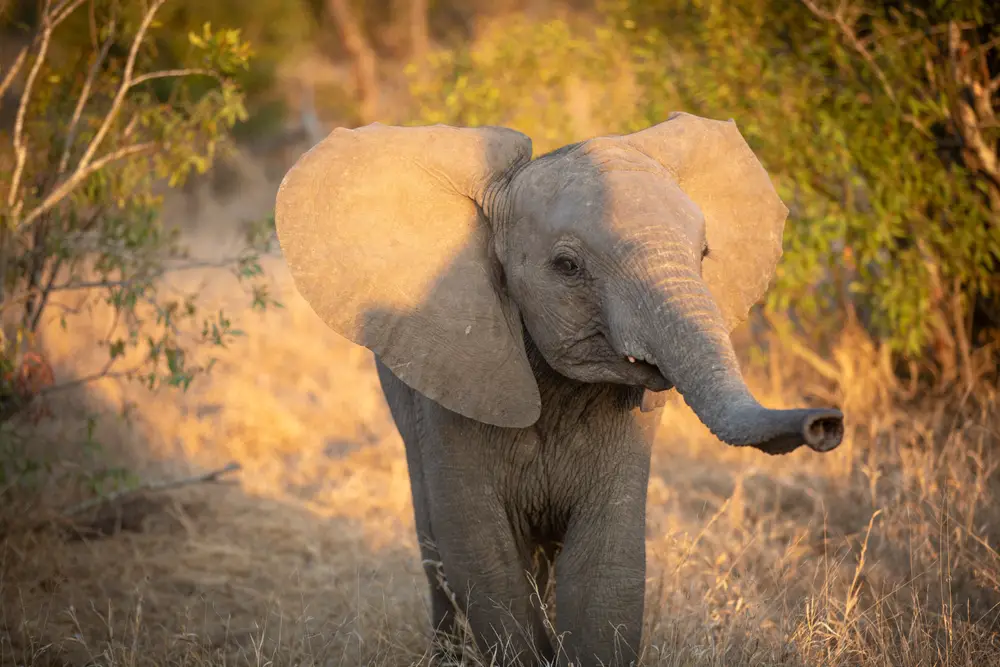
Baby elephants, or calves, are born weighing a hefty 200 pounds—about the same as a fully grown human. This substantial birth weight sets them up for their journey to become the largest land animal on Earth. It’s a hefty start in life that speaks volumes about their giant destiny.
During their first year, these calves gain about 2-3 pounds daily, growing rapidly to match their elephant-sized futures, according to the World Wildlife Fund. The weight gain is essential as it helps them keep up with the herd and survive in the wild. They remain adorably clumsy despite their size, often tripping over their trunks and legs. The first months in an elephant’s life are all about learning the ropes and building strength.
2. They Have A Long Childhood
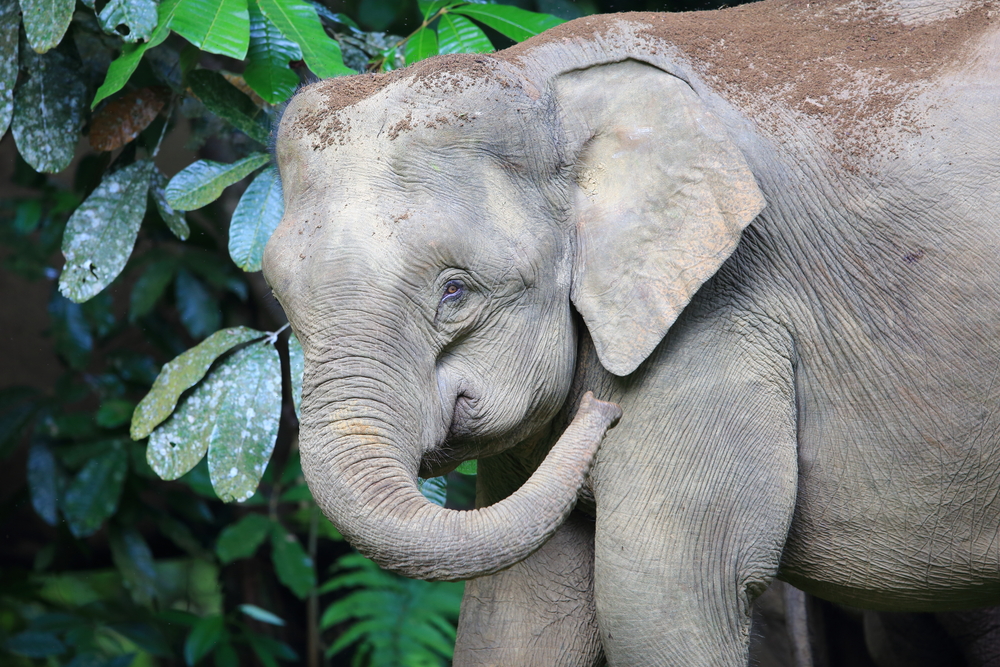
In the world of elephants, childhood is not a rush to maturity. Baby elephants enjoy a lengthy adolescence of about 10-15 years before reaching adulthood. This extended period is vital for learning the complex social structures of their herd and mastering survival skills.
During this time, calves are nurtured and taught by not just their mothers but other female relatives as well. This communal style of parenting ensures that they receive plenty of attention and guidance. As they grow, calves learn how to use their trunks, find food, and socialize. It’s a childhood filled with exploration and education, crucial for their later independent life.
3. They Regularly Trip Over Their Trunk
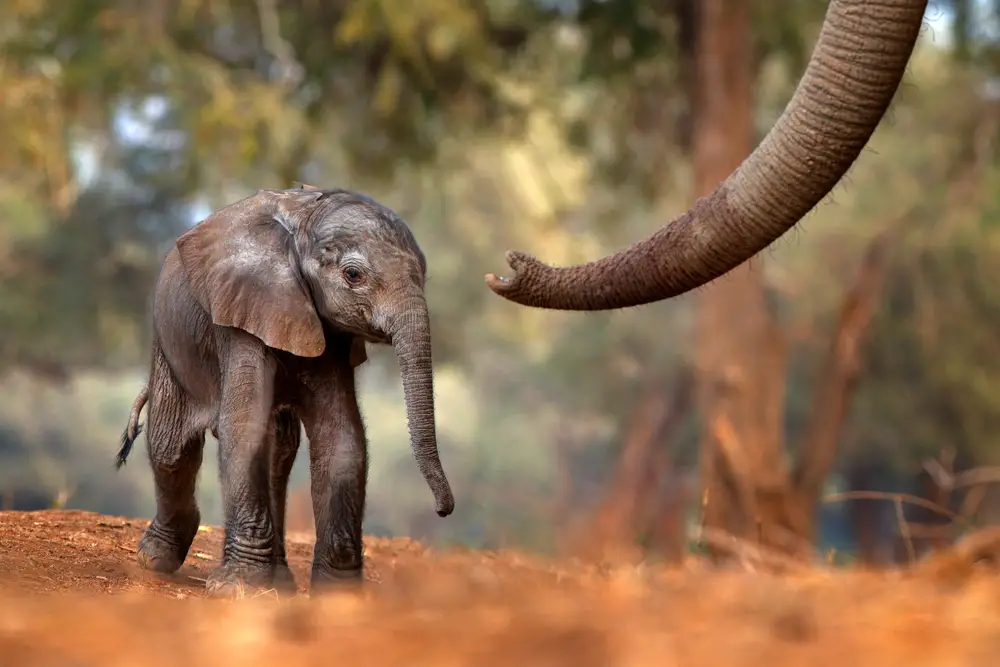
A baby elephant’s trunk is a marvel of biology, equipped with over 40,000 muscles. However, it takes some time for calves to get the hang of it, which makes for some amusing antics. For the first few months, they often trip over it and use it more like a fifth leg.
According to the San Diego Zoo, elephants use their trunks for everything from drinking and eating to bathing and greeting. It’s a versatile tool that calves must learn to master early on. As they grow, they learn to deftly pick up objects, communicate, and even express emotion through their trunk. It’s a journey of awkward beginnings leading to graceful mastery.
4. They Develop Their High IQ Through Play
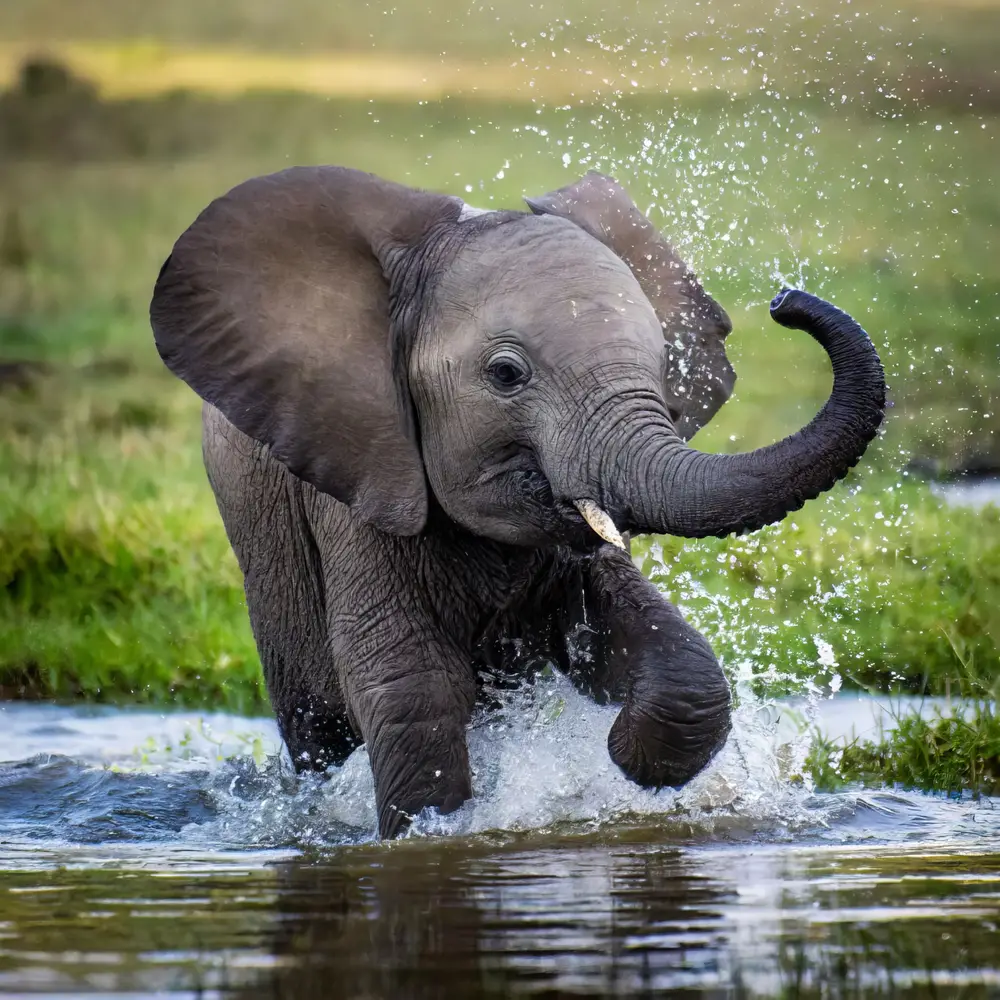
Playtime for baby elephants is serious business. It’s not just about fun, although there’s plenty of that; it’s crucial for their development. Through play, calves learn essential social skills, develop physical strength, and hone their motor skills.
Young elephants engage in mock charges, wrestling, and trunk-swinging games. These playful interactions are not only entertaining to watch but vital for their psychological and physical health. Play fosters bonds within the herd, teaching calves the dynamics of elephant society. It’s nature’s way of ensuring they become well-adjusted adults.
5. Their Moms Are Everything
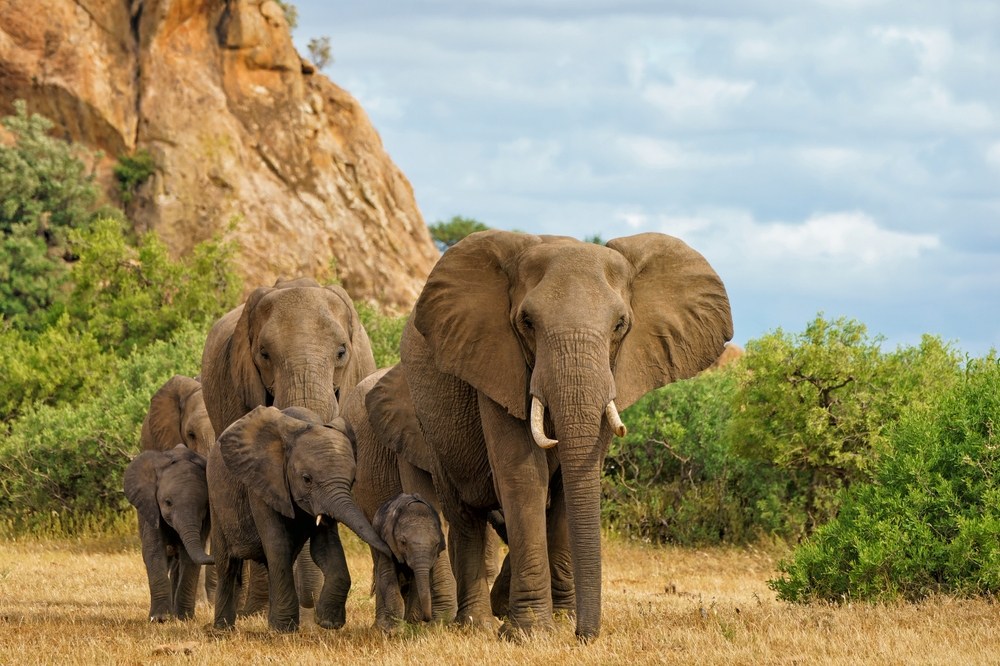
Family is everything for elephants. Baby elephants are born into a matriarchal society where the oldest female leads the herd, as outlined by this University of Oxford study. The matriarch’s wisdom and experience are invaluable, guiding the herd through migrations and teaching the young essential survival skills.
The bond between a mother and her calf is particularly strong, with mothers fiercely protective of their young. The entire herd, however, takes part in raising the calves. This collective upbringing ensures that baby elephants receive plenty of care, learning, and love. The saying “it takes a village” could not be more accurate when it comes to these magnificent creatures.
6. They Also Love Mommy’s Milk
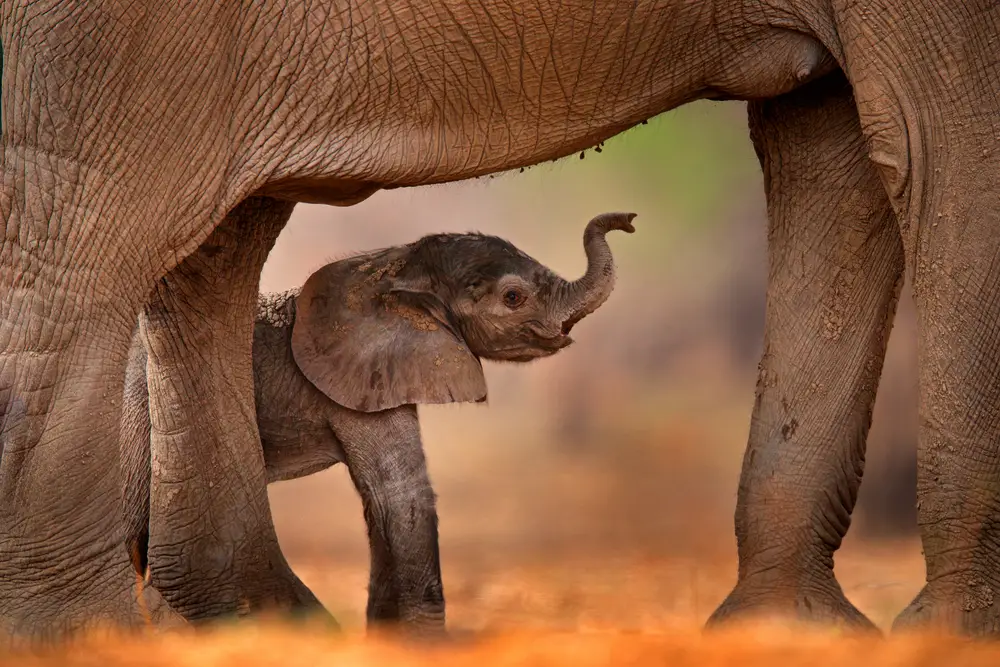
Baby elephants rely heavily on their mother’s milk for nutrition during their early years. They nurse for up to three years, though they start experimenting with solid food around six months. This long nursing period allows them to build a strong immune system.
The transition from milk to solid food is gradual. Calves mimic adults by picking up food with their trunks, learning what’s safe to eat. This trial and error is part of their essential learning process in finding food sources. It’s one of the many ways elephants pass down knowledge through generations.
7. They’re Gentle Giants With Big Hearts
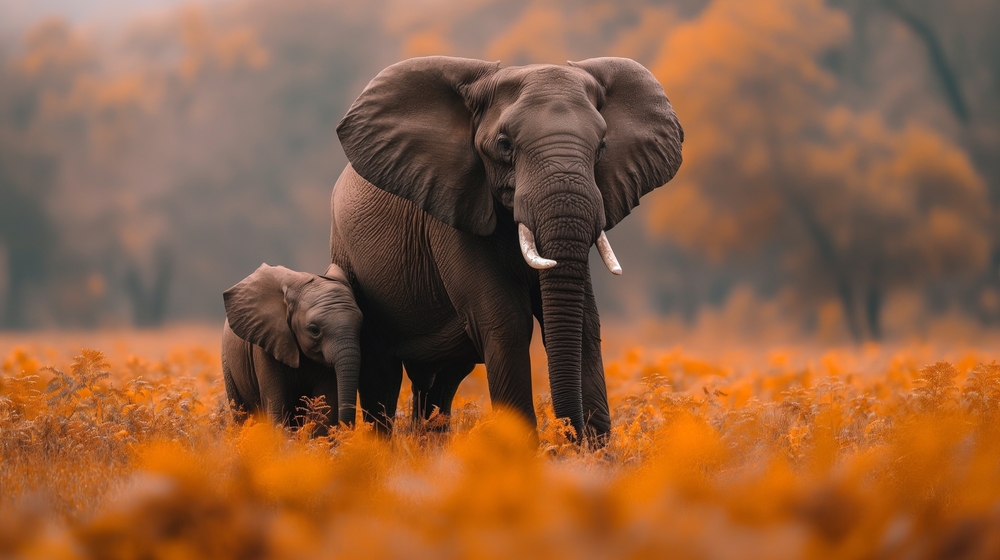
Despite their size, elephants are known for their gentle nature. Baby elephants exhibit a range of emotions and are incredibly empathetic. They can often be seen comforting each other in times of distress or celebrating joyful moments.
Research shows that elephants experience complex emotions comparable to humans. Calves learn these emotional cues from their mothers and herd members. It’s not uncommon to see an elephant calf showing care by wrapping its trunk around a distressed friend. This emotional intelligence is part of what makes elephants so special.
8. They Thrive On A Daily Routine

Life for a baby elephant follows a structured routine. Each day is a mix of feeding, napping, and playing. This predictability provides the security needed for growth and learning.
Calves spend a significant portion of their day feeding, which is essential for their rapid growth. Naps are equally important, allowing the young elephants to recharge. Play comes naturally, offering a break from the routine. This balance of activities is key to their healthy development.
9. They’re Water Babies
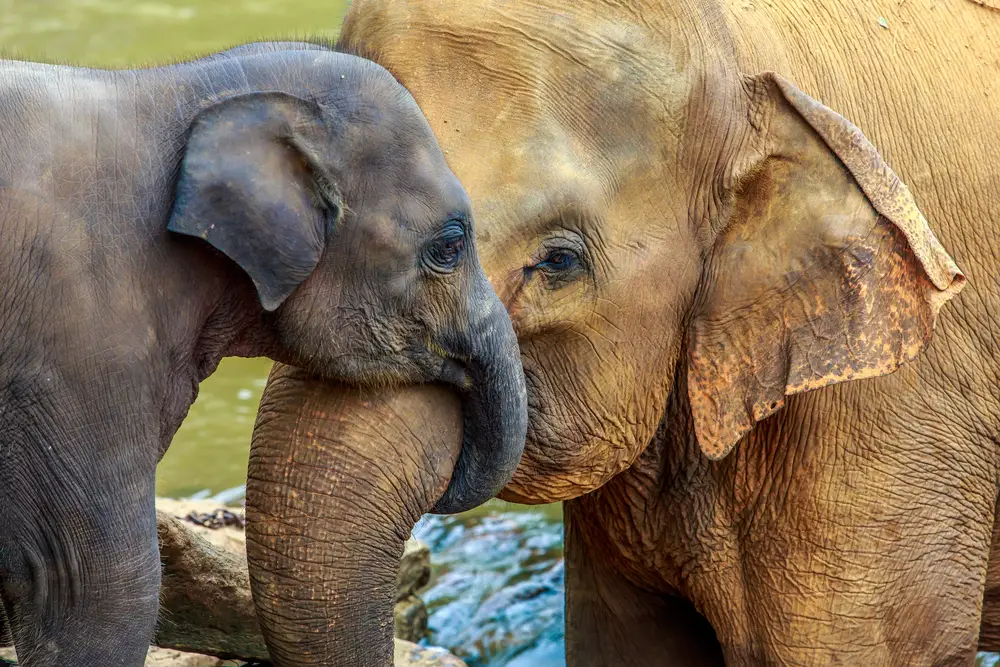
Elephants have a natural affinity for water, and baby elephants are no exception. They love splashing around, often turning bath time into an exuberant affair. Water provides a playground where they can engage in carefree fun.
Swimming also plays a role in building strength and coordination. Calves learn to navigate water with guidance from their mothers. They practice using their trunks as snorkels, venturing deeper with each attempt. It’s an activity that’s both enjoyable and educational for young elephants.
10. They Have A Love Language
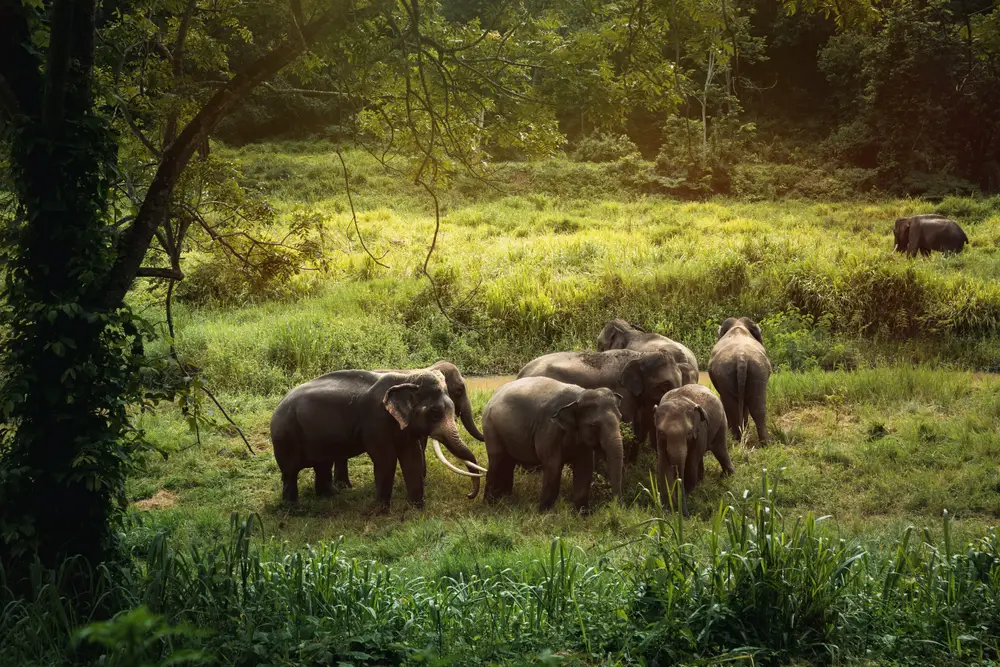
Communication in elephants is a sophisticated affair, even for calves. From birth, baby elephants begin to learn the complex language of rumbles, trumpets, and body language. These sounds convey a range of emotions and messages.
According to researchers, elephant vocalizations can travel several miles, allowing herds to communicate across distances. Calves start by mimicking the sounds of their mothers and herd members. Over time, they refine their vocal skills, learning to use sounds to express needs and maintain social bonds. It’s a language that’s both instinctual and taught.
11. They Love a Midnight Snack
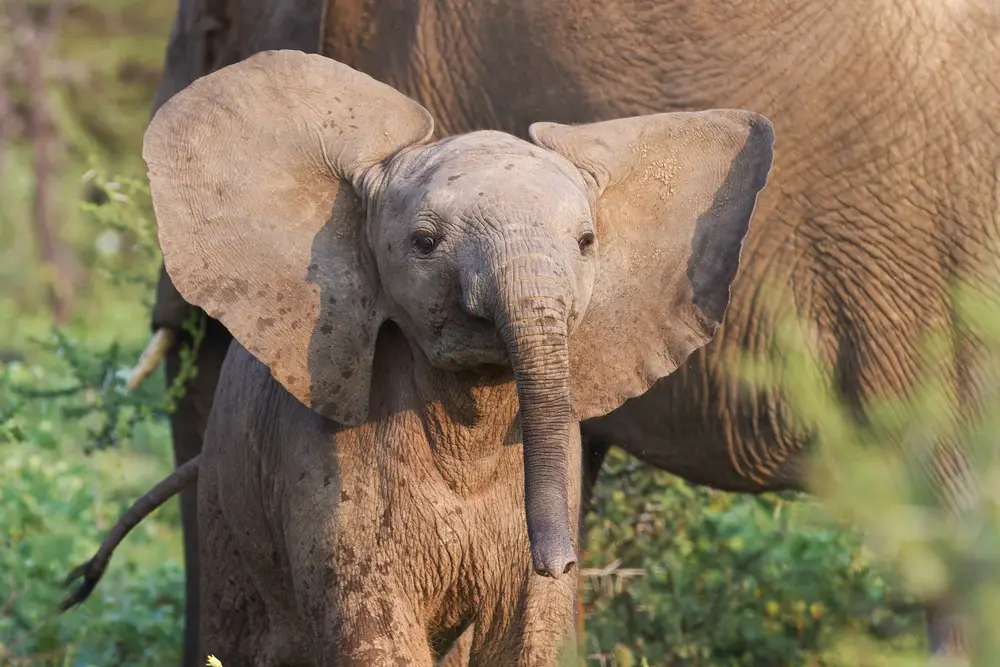
Elephants are known for their round-the-clock eating habits, and baby elephants are no exception. Feeding is a constant activity, with calves often indulging in midnight snacks. This continuous intake is necessary to fuel their rapid growth.
Nighttime can also be a time for adventure. While the herd rests, baby elephants might explore their surroundings under the watchful eye of older elephants. These nocturnal escapades help them familiarize themselves with their environment. It’s a time of quiet exploration and learning.
12. They Learn From The Best
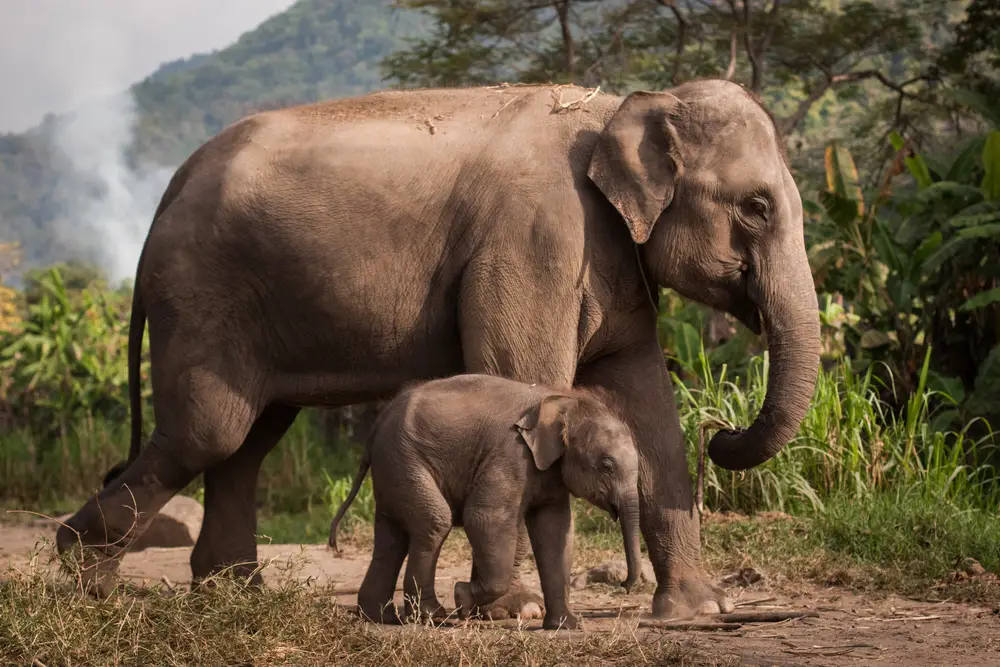
The matriarch plays a pivotal role in the life of a baby elephant. Her experience and leadership guide the herd, ensuring safety and stability. Calves learn invaluable lessons by observing the matriarch’s behavior.
From migration routes to social dynamics, the matriarch imparts wisdom that is crucial for survival. Her influence extends beyond her own offspring, impacting the entire herd. Baby elephants watch closely, absorbing life skills and social cues. It’s a mentorship that shapes their future as part of the herd.
13. They Understand You Must Stick Together
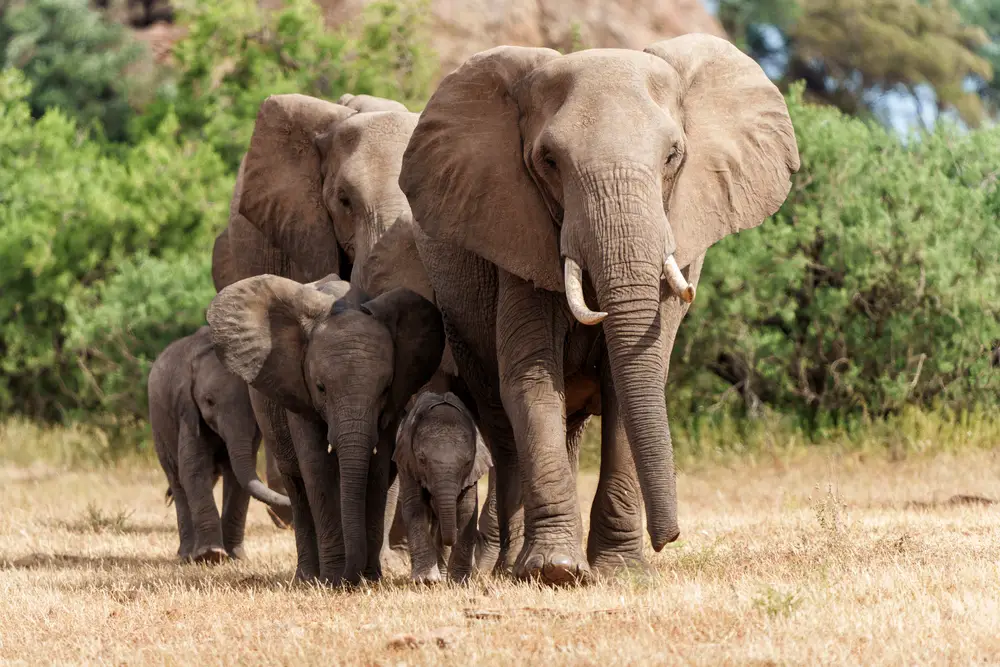
Life in the wild presents numerous challenges, but baby elephants have the advantage of a supportive herd. Together, they face predators, find food, and navigate harsh environments. This collective strength ensures that calves grow up in a secure and nurturing environment.
Herds rally together in times of danger, forming protective circles around calves. These instincts are vital for defense and survival. As they grow, calves learn to contribute to the herd’s safety and success. It’s a testament to the power of community in the animal kingdom.
